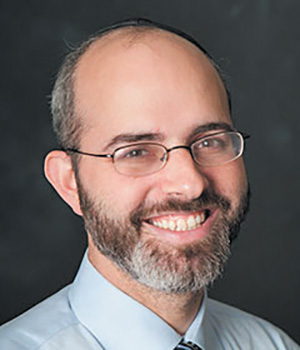
May these words of Torah serve as a merit le’iluy nishmat Menachem Mendel ben Harav Yoel David Balk, a”h.
Why is it hard to convict?
In Halacha, it is very hard to convict a person of a capital offense. Why did Hashem create such a system? Is it fair to allow the guilty to walk out free?
Maharal (Be’er Hagolah, Be’er Hasheini) discusses this problem.
Maharal explains that the halacha of veheitzilu ha’eidah applies in times of peace and strong societal standards. When the community is basically righteous, we are to be most careful not to convict the innocent man. We need to treasure life. We need to flee from possible spilling of innocent blood. Only when we are totally certain that the man deserves death do we put him to death. We ask many questions of the witnesses so that we are fully sure that the guilty man deserves his punishment. In times of weak societal standards we would act differently. If the court sees that killers are killing with impunity for they feel that they will never be put to death, then the court will not give witnesses a hard time. Gemara Yevamot (90b) teaches that the court is entitled to fine, beat and put to death without the normal evidentiary standards or rules of the court if the times call for such actions. It is only when the generation is righteous that it is hard to convict.
You might ask: even in good times, why make it so hard to convict? Guilty killers might get away with their crimes. Maharal answers, if a man killed in private, with no witnesses or warning, who would cause him to get punished? Would he get away with his crime? The answer is that Hashem, Who knows all, will punish the man who kills in private. Hashem will also punish the guilty killer who got out of court because witnesses contradict each other. It is not our responsibility to punish the guilty. Hashem can do that. Our law wants us to internalize the value of human life. It wants us to only put to death when we are fully certain that it is deserved (Daf al hadaf).
Can witnesses testify through Skype?
Perek Hayu Bodkin teaches about the laws of testimony. Witnesses had seen Reuven borrow from Shimon. They were in another country at the time of the trial. Rav Yitzchok Zilberstein discusses a modern question. Could the court arrange for a Skype session and receive their testimony through a video screen in the beit din? The litigants would be there. They would hear the words of the witnesses. The witnesses would be seen. They would be cross-examined. Would such testimony be accepted in a court of Jewish law?
Rav Chaim Berlin in Shu”t Even Shoham (Siman 64) is open to accepting testimony through a phonograph. He thinks that if witnesses cannot come to court, they can make a record of their testimony. The phonograph machine can then be brought to the court. Their record will be played in the presence of the litigants. While he rules that testimony has to be oral and cannot be written, since with a record it is the voice of the witnesses being heard perhaps this is considered testimony from their mouths.
Rav Shlomo Zalman Auerbach in Shu”t Minchat Shlomo (Chelek Aleph Siman 9) disagrees with Rav Chaim Berlin. A witness comes to court. He has a weak voice. The judges ask him to speak through a microphone so they can hear him. If he gives testimony through a microphone is it acceptable? Rav Shlomo Zalman thinks it is likely not acceptable. A microphone takes sound waves, translates them to electrical signals and then replays the signals in a louder volume. Hearing a microphone is not hearing the voice of the witness. The Torah said we are to hear testimony from their mouths. Testimony that is written is not accepted. It is a decree of the verse that the court must hear the voices of the witnesses. Perhaps, through a microphone, they are not hearing the voices of the witnesses. Rav Shlomo Zalman, who has a hard time with a microphone, would certainly not accept testimony played off a record.
Rav Shlomo Zalman quotes Chazon Ish on this issue. Chazon Ish told Rav Shlomo Zalman that he thinks you could fulfill your obligation of prayer by hearing prayers from a microphone. A microphone and telephone are controlled by the speaker. You hear his intonations. You hear him right away. This is considered hearing him directly. According to this understanding, when the Mishnah rejects Kol Havara for a shofar, it refers to an echo that emerges after the shofar is blown. However, a telephone and microphone are considered the voice of the speaker for the sound is heard right away.
Rav Zilberstein argues that perhaps testimony can be accepted through Skype. Rav Chaim Berlin was open to accepting a phonograph recording. Chazon Ish accepts words through a telephone or microphone. Rashi feels that the verse requires oral testimony and not written testimony, but Shu”t Chatam Sofer (Even Haezer Chelek Bet Siman 5) explains the reason for the law. It is easier to determine credibility when you see the speaker’s face, hear his intonations and see the twitches and movements he makes. With Skype you will see the witness’s face while he speaks. Perhaps his testimony is acceptable.
By Rabbi Zev Reichman
(Chashukei Chemed)
Rabbi Zev Reichman teaches Daf Yomi in his shul, East Hill Synagogue.









